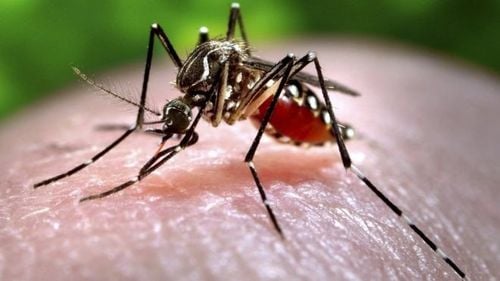This is an automatically translated article.
Zika virus is not only transmitted by mosquito bites but also other ways such as blood transfusion, sexual intercourse or from mother to child with manifestations such as low-grade fever, maculopapular rash, muscle and joint pain, conjunctivitis. eye,...1. What is Zika virus?
Zika virus is a virus that was first discovered in a monkey species in Uganda in 1947. The name of the virus is named after the Zika forest - where it was first discovered. The mechanism of disease in humans, Zika virus is mainly spread by mosquito bites. Mosquitoes transmit disease by sucking the virus from an infected person and transferring it to a normal person.Zika virus incubation period is about 2-12 days after being bitten by a mosquito. About 75-80% of patients after being infected with Zika virus have no clinical symptoms. Other patients presented with mild illness such as: low fever (37.8 - 38.5°C), fatigue, rash, pain in small joints in hands and feet, muscle pain, headache, pulse inflammation conjunctival hemorrhage, fovea pain, and asthenia. A small number of patients may experience abdominal pain, nausea, diarrhea, itching, or mucosal ulceration.
Most people infected with Zika virus make a full recovery and symptoms resolve on their own within 1 week. However, Zika virus disease is especially dangerous if passed from mother to child. Babies born with Zika virus disease can have birth defects such as eye defects, hearing loss, growth impairment, microcephaly, and brain defects.
2. How is Zika virus transmitted?

Virus Zika truyền sang người thông qua vết đốt từ muỗi nhiễm bệnh thuộc họ Aedes

Về mặt lý thuyết virus Zika có thể lây truyền qua đường truyền máu
Please dial HOTLINE for more information or register for an appointment HERE. Download MyVinmec app to make appointments faster and to manage your bookings easily.
Article referenced source: Ministry of Health












